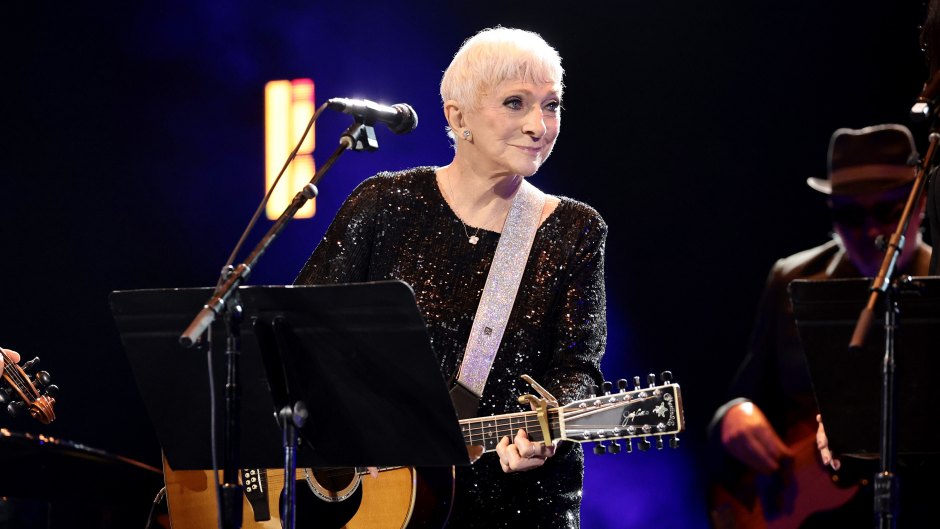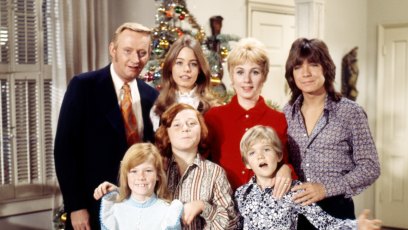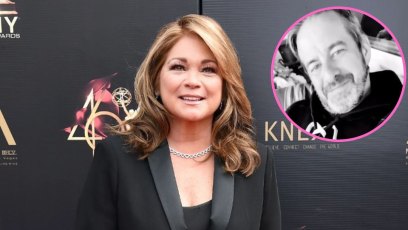
Jamie McCarthy/Getty Images for Tribeca Festival
Singer Judy Collins Still Touring and Writing Music at 84: ‘I Never Want to Stop’ Amid Iconic Career
Grammy-winning singer songwriter Judy Collins has not let time drag her down. At 84, she continues to tour and write music, poems and prose. “Performing is vital to my mental, physical and emotional health,” she told Closer after receiving the Legend Award at the 11th annual She Rocks Awards, which was part of the music products convention, NAMM. “At the moment, I’m finishing up a book of poetry. I’ve been asked to do some editing to it, which means I’ll be using that muscle, which is good. And then I’ll get to the new book that I’m starting. I love to have something in process.”
Judy’s rarely stood still since her dazzling rendition of “Both Sides Now,” written by Joni Mitchell, from her 1967 album Wildflowers brought her international prominence. She also enjoyed success with her renditions of “Chelsea Morning,” “Amazing Grace,” “Turn! Turn! Turn!” and “Send In the Clowns.” Judy’s latest album is called Spellbound.
Tell us a little about your upbringing.
“I was born in Seattle, Washington, and was the eldest of five children. I studied classical piano with the famous Dutch conductor Antonia Brico, performing Mozart concertos at 13. Then I learned the guitar and fell in love with folk music.”
Did anyone inspire you to sing?
“My father was a great performer and singer and even a pretty good songwriter. He had a career in the radio business for 30 years. I grew up watching him, listening to him and learning how to do what he did. Things like how he chose songs and how he disciplined himself.”
Did your father encourage you?
“Yes. My first performance on the stage was when I was 3½. My father was touring the Northeast, and we wound up in Butte, Montana. He said, ‘Why don’t you step up on the stage here and sing a song?’ I sang ‘I’ll Be Home for Christmas.’ It was April, but it was a big hit.”
In the 1960s, you became part of New York’s folk scene. Who were you influenced by?
“I landed in New York in 1963 and was exposed to Pete Seeger, Woody Guthrie, Randy Newman, Tom Paxton and Phil Ochs. I was very lucky to be around such beautiful writers at that time.”

You had one of your greatest career successes with your version of Stephen Sondheim’s “Send In the Clowns.” How did that come about?
“I fell into Sondheim when I first got to know Leonard Cohen. In 1966, he introduced me to all of his friends from Canada and I got to know a woman named Nancy Bacal. She was the closest thing that Leonard had to a sister. She sent me a copy of A Little Night Music. She said, ‘I’ve circled this song for you to listen to,’ which of course, was ‘Send In the Clowns.’ So, in a way, karmically, that whole introduction to Sondheim and that song came through Leonard. He’s always been on my side in a spiritual manner.”
Every performer has peaks and valleys. What has kept you going?
“Well, you just never give up. That’s how it goes. You keep working, and when you fall down, you pick yourself up and you go on. I learned from a master, my father. He never missed a show. He got up, no matter how much he had to drink the night before. He always was happy and singing and positive. He was a great artist and a great thinker and a great reader — all the things you want from a parent. He taught me a lot.”
You’ve been candid about struggling with addiction and being 45 years sober. Do you have any advice for others who want to change the path they’re on?
“Go to AA. Go to a 12-step program. It’s free. It works. It’s the best thing in town. And you know, they don’t fool around.”
What else keeps you healthy?
“I started exercising when I was in my early 20s, and I still do. I eat right and meditate and all those other things that help. But you know, if you’re not sober, you’re bound for the mortuary.”
What kind of exercise works for you?
“I do a lot of walks. I’m wearing a little 8-pound vest right now. I’m trying to work on the bones because I have osteoporosis from a life of eating issues. I had bulimia for a while. But also, I’m a restrictor, in terms of food, and that doesn’t help the bones. I always want to eat less than anybody does. It’s hard on the bones. So, I’m serious about working with the weight trainer.”
You became a mental health advocate after the suicide of your son, Clark, in 1992. What advice do you have for other families dealing with similar issues?
“The first thing is to get help. Do not be afraid to talk about it. I think the main thing to cancel the taboo around these things is to give them a voice and to talk to people. Get the books, get the help, go to therapy. Find someone who understands the situation and has been there, and try to be open about it, because it helps other people to face their own problems when you do.”
What other causes do you support?
“There is an organization called Safer Country. It’s focused on gun control. In this country, we’ve able to ban smoking, and if we can do that, we can stop these guns. I also try to give money to places and people that I think deserve it. You know, things like Audubon, the bird societies and animal rescue.”
What’s the best part of being your age?
“I’m always the same age that I am. I don’t even think about the years. I think: What can I do? How can I do it? What should I be doing that I’m not doing? How can I be healthier than I am? How can I read all the things I want to read and take part in all of these enterprises that I want to be part of? I am one of those go, go, go people.”
So, you never plan to slow down?
“Oh God, no! My husband had a bad fall about two months ago. He didn’t have to have surgery, but he broke the top of his right shoulder and had some cracks in his pelvis. He went to Rusk, a New York rehab hospital. They are fabulous. Now he’s walking and we’re going out to parties and having a wonderful life. I never want to stop! “








































